The story of Ecofiltro begins thirty years ago when a Guatemalan scientist, Dr. Fernando Mazariegos, accepted the challenge to find an effective, economic, and eco-friendly way to purify water.
Fernando Mazariegos, inventor of Ecofiltro. Photo by Grecia Ortíz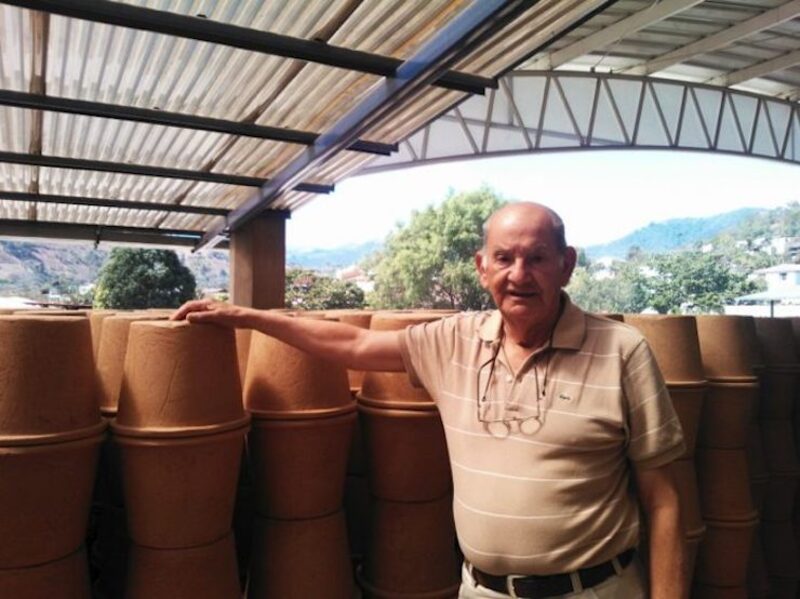
Why was it so needed?
The Water Problem in Guatemala
Guatemala faces an enormous challenge. Apart from high levels of criminality, the major cause of deaths come from the poor water quality.
Local communities from rural areas found ways to deal with it: they cut wood to be able to boil water and purify it that way.
Photo by Clean Cooking Alliance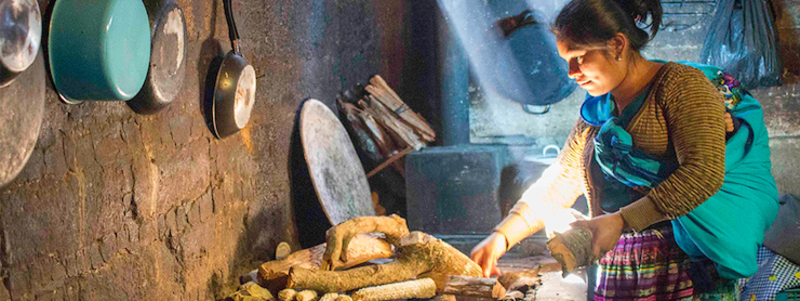
At first glance it might seem like a decent solution.
In reality, it causes even more problems. Here’s why:
- Water needs to be boiled in extremely high temperatures for it to be purified and even then it’s not 100% ready to be consumed. Because of its low quality, people end up drinking contaminated water and face major gastro-intestinal health problems leading to chronic malnutrition.
- Many families cook in limited, closed spaces and women tend to do it with babies on their backs, inhaling unhealthy wood smoke, which leads to serious respiratory problems for both.
- Apart from health issues, excessive wood harvest leads to deforestation of local areas and negatively impacts the environment.
Enter Ecofiltro
This is when Fernando Mazariegos comes into the picture. After countless studies, research, and prototypes, Ecofiltro technology is born.
Ecofiltro factory in Guatemala. Photo by Revista Summa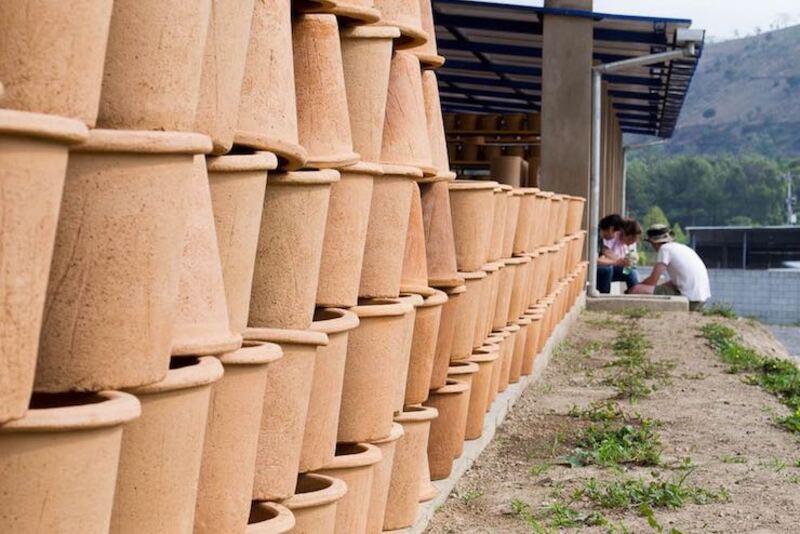
This is how it began, as a non-profit organization, founded by Philip Wilson, with the aim of bringing potable water to all remote corners of Guatemala.
The solution was perfect: Ecofiltro didn’t need electricity and could filter all types of water (apart from the seawater!) including rainwater, water from rivers, tap, and wells.
Most importantly, it could eliminate all kinds of bacteria, parasites, and contaminants at the same time giving water a natural, pleasant taste.
Even so, locals from rural communities were sceptical.
Changing People’s Habits
Why weren’t people enthusiastic at first? Just like in many areas of latinamerica and in countries that face water contamination problem, Guatemalans simply didn’t like the taste of water.
The habit is to buy coca-cola or other soda-like beverages that don’t offer any nutritional value. There is no culture of drinking water. Why would there be though, if water isn’t safe?
That was the main mission of the young NGO: donate Ecofiltro to offer a sustainable source of healthy and fresh water full of nutritional value.
Guatemalan families receiving filters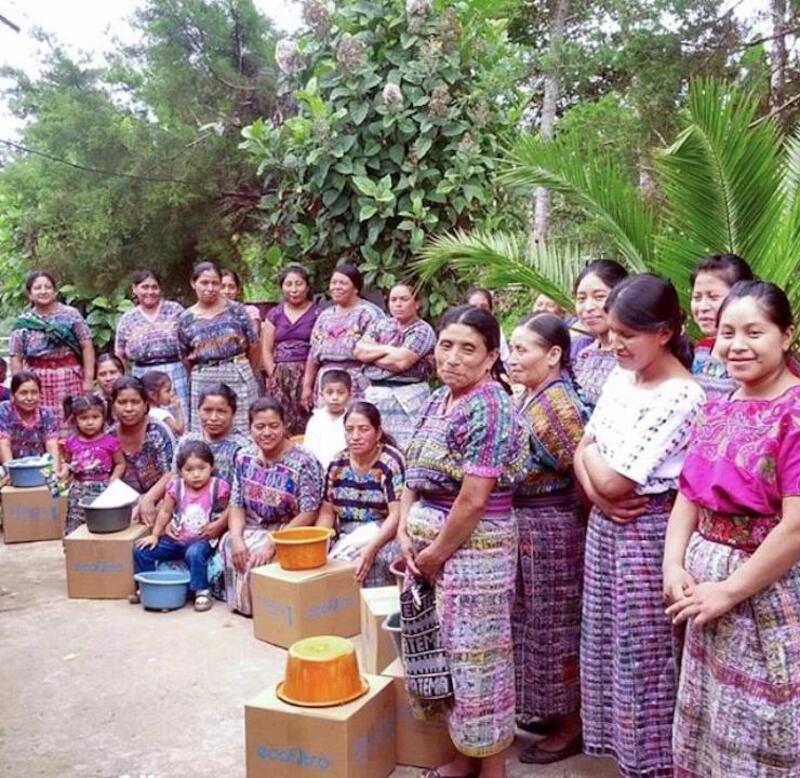
The problem was still present though. Because filters were offered for free, it was diminishing their value and people were using them for everything else (including trash bins), but to purify water.
How did Ecofiltro turn it around?
Transition From an NGO to a Social Enterprise
By turning into a social enterprise, Ecofiltro created a new business model: it would design a higher-end product (the Ecofiltro you know today) and sell it in urban areas. This would allow to dedicate incoming sales profits to subsidise programs in rural areas.
Guatemalan women transporting Ecofiltro home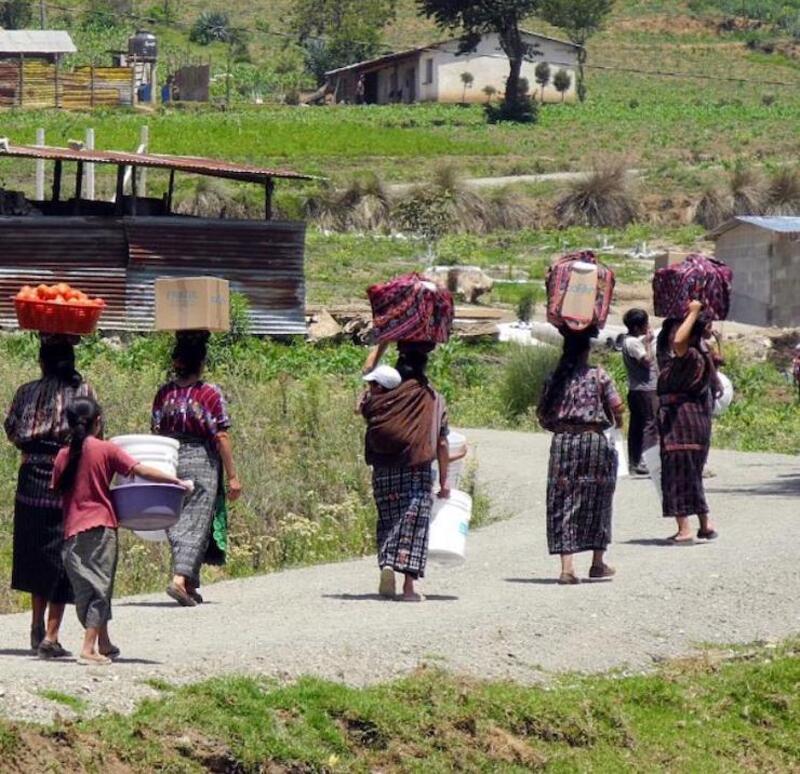
This is when an initiative called “Water for Life” was born. Each Guatemalan region would have a dedicated Ecofiltro representative whose task was to connect with public schools in every single village. The rep would then donate the filter in exchange for schools to summon local families and raise awareness about water.
Bringing filters home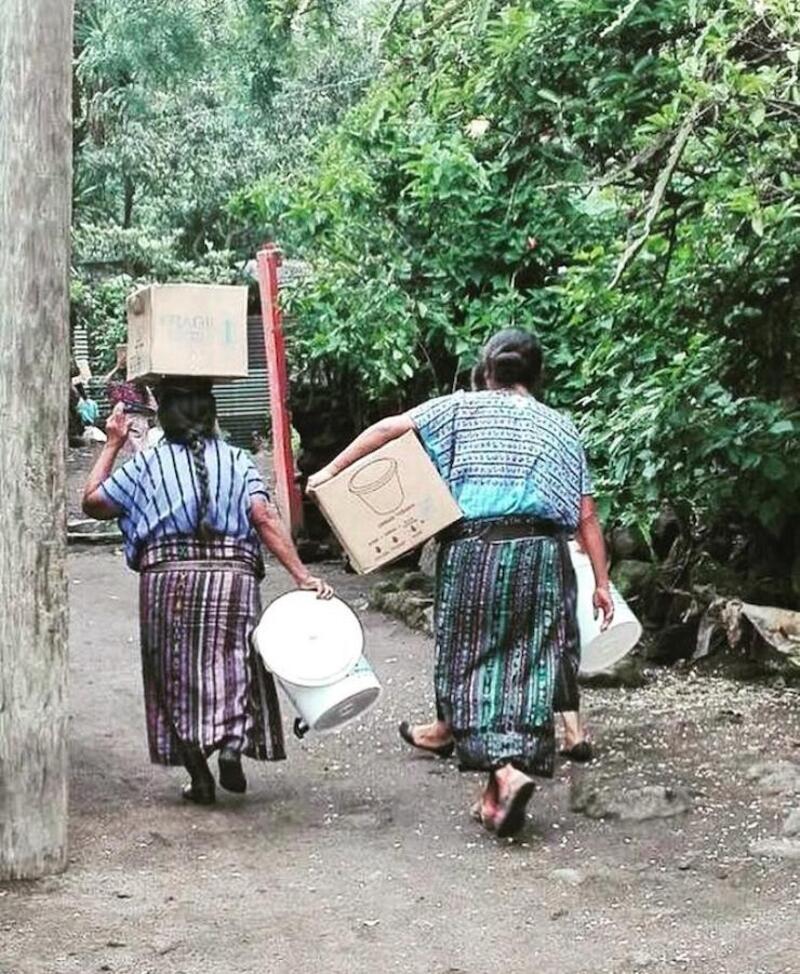
Those much needed educational sessions aimed to answer such questions as:
- Why is the water contaminated?
- Why are the mothers and children getting sick?
- What can be done to prevent this?
- Why is drinking good quality water so important?
Most importantly it was crucial to let people know they could easily be part of the solution.
Those interested started subscribing to the “Water for Life” program which helped them pay for Ecofiltro through monthly instalments. This symbolic price added value to the product which in turn made people use it with much needed care and most importantly, to filter water (not to dispose of trash.)
Local children receiving Ecofiltro at school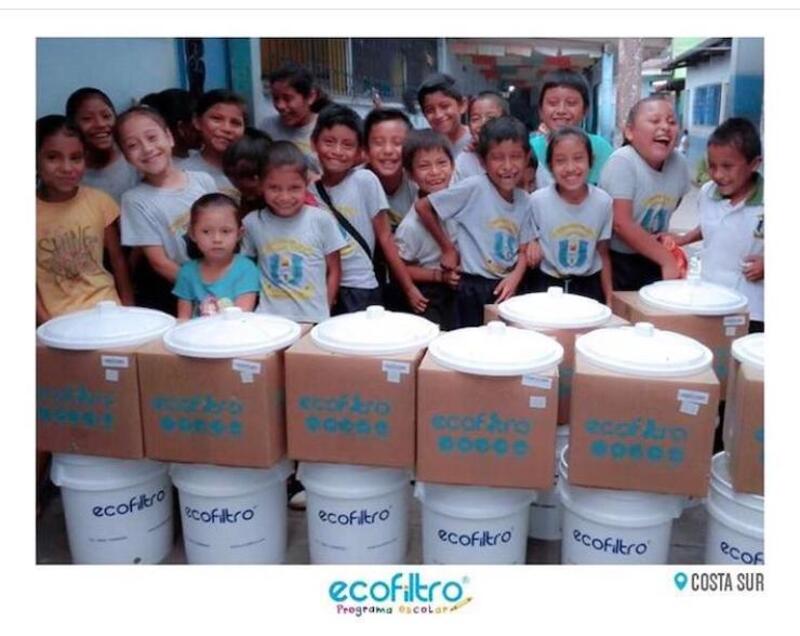
Grand Social Impact
Did it work? Numbers speak for themselves.
Years ago Ecofiltro had a bold goal: to help one million Guatemalan families before 2020.
Not only is this objective very close to be met, but the work has been spectacular in many other aspects we well.
- Ecofiltro was introduced to 4,623 schools in 4 years
- 27,742 filters have been donated to schools
- 832,260 children have been admitted to school programs
Local children at one of the 4,623 schools where Ecofiltro was introduced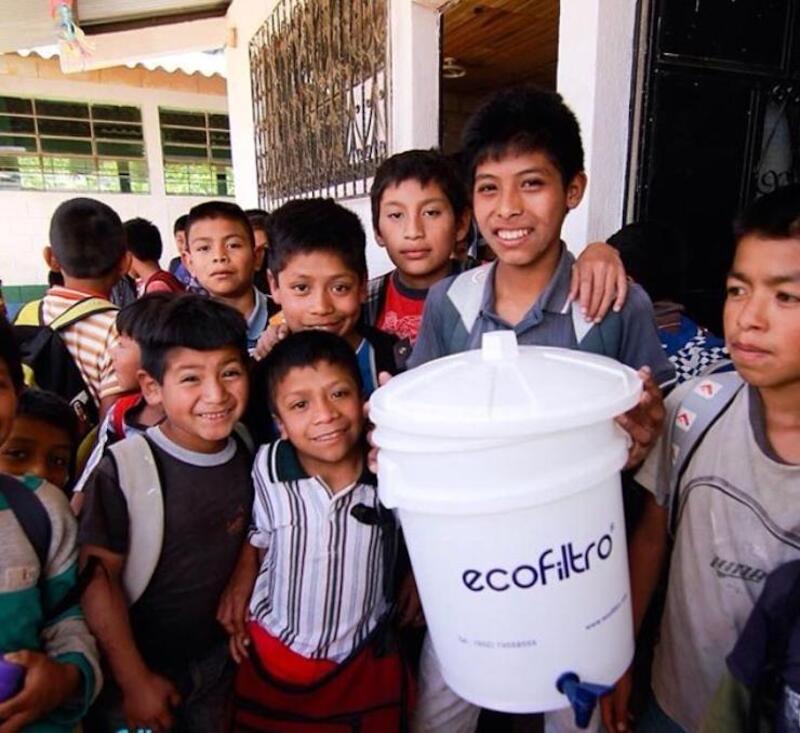
During the last 10 years of the program, Ecolfitro became a sustainable solution to the water problem because:
- People from rural areas realized it was their responsibility to change filters and no NGO was going to come fix things. Their health was now in their hands.
- There has been a drastic change in the health status of the local families: both adults and children. Ten years ago, one out of five kids died before turning five years old due to the poor water quality. Now there are more healthy children who can go to school and get the needed education which helps immensely with the country’s development.
- Parents no longer suffer from gastro-intestinal problems and can go to work to sustain their families better.
- Wood no longer is harvested in such drastic amounts which has a positive impact on the environment. Since Ecofiltro is made from biodegradable materials, when the time comes to change it (every 2 years), it can simply be used for compost, ground fertilizer, or as a flower pot.
Serving water from Ecofiltro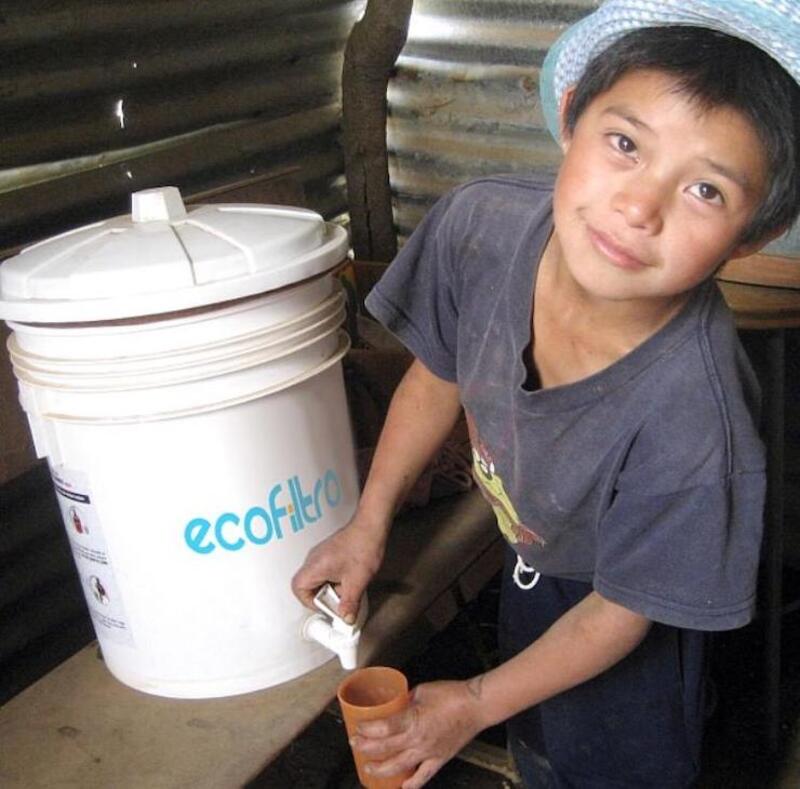
Ecofiltro Travels Across The World
It wasn’t long before the word about Ecofiltro spread.
First it was adapted in many countries across latinamerica that faced similar water problems. And so it traveled to México, Panamá, Costa Rica, and Honduras. But it didn’t stop there. It was also welcomed in Asia with the recent factory opening in Indonesia. Africa also has various factories across the continent.
Then the rest of the world followed. First United States and now Europe where it has been for one year and a half.
It was Ariana Pizzatti who brought Ecofiltro to Europe.
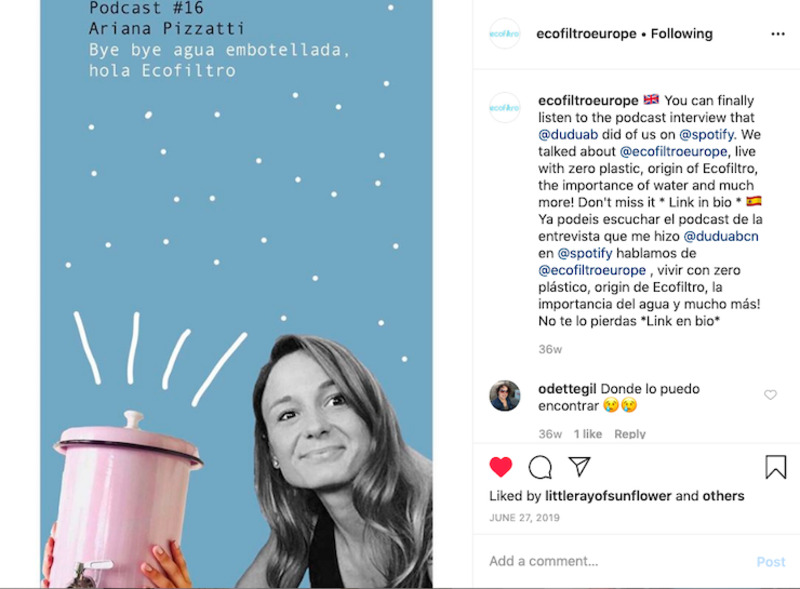
Raised between Guatemala, Germany, and Italy upon finishing her studies, Ariana’s dream was to experience living outside of Europe. So, she went back to Guatemala and stumbled upon Ecofiltro’s job offer: they were looking for a Director of Marketing.
She gladly accepted the post with all its challenges, the biggest one being: how do we communicate with an indigenous community from rural areas who speak 30 different languages and are illiterate? Ariana got creative and hired an artist to tell Ecofiltro’s story through drawings that spoke to local communities. Then, she brought on board representatives who could go to local schools and spread awareness.
After years in Guatemala, she came back to Europe to work in several different companies only to discover a repeating pattern: none of them had a mission that spoke to her. She wasn’t making an impact. So, she contacted Ecofiltro and offered to bring it to the Old Continent.
This is how Ecofiltro is available in Barcelona and throughout Europe.
5 liter Ecofiltro, ideal for home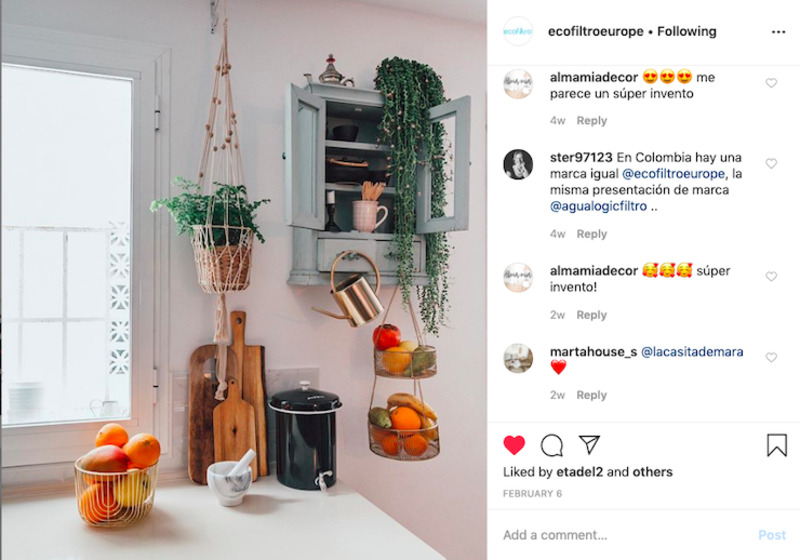
Scarcity of Water
For Ariana, water is not only a problem of developing countries. It’s a global challenge. There’s still an abundance of water in the world, but the question is about its quality. Our sources of water get more and more polluted every day and the contamination is stronger. The solutions are more challenging.
We’re also coming to a point where access to water becomes a luxury, while it’s our most basic need, one that gives life. It shouldn't be the case.
Residents of Cape Town line up to collect their water quota. Photo Source.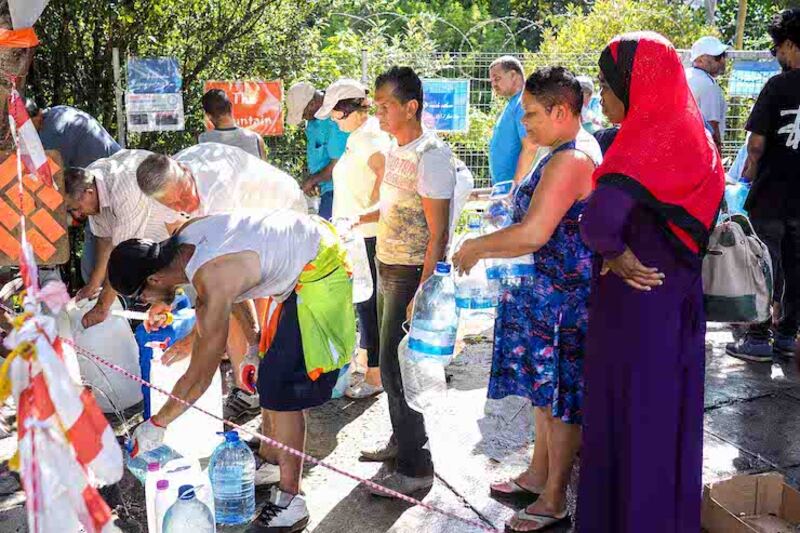
In the world where water becomes scarce (like in South Africa), we need initiatives like Refill Aqua. We need to help one another and fight against huge enterprises that have privatized the water industry and are having an immense negative impact on the environment with their plastics.
-says Ariana.
We couldn’t agree more.
That’s why when Ariana and I met last October (2019) and spent two hours vividly discussing the plastic pollution and water scarcity problem, we decided to join forces.
The Plastic Madness
Ariana and I are both equally worried about climate change and plastic pollution that only helps accelerate it.
Back in Guatemala a few years ago there was one major bottled water company supplying homes with 10 liter bottles which were transported under the sun for hours. It creates microplastics which are harmful to health, but the scary thing is that people don’t realize and question that.
Since filters were not an option, people were used to plastic because it was the only way to purify water. Until Ecofiltro came along.
In Europe we’re facing a similar situation. Although water quality is not really a problem in Barcelona, still, the only way for the city to make it drinkable is to add chlorine to it. And this isn’t ideal for our health either.
A small percentage of us filter water. And the rest? Well, the rest still chooses plastic bottles. For years we’ve been exposed to lobbying from the biggest plastic enterprises making us believe this is the “safe” way to consume water. The thing is though, we don’t even know the real statistics of recycling all the bottles.
Coke, Pepsi, Nestlé and other large companies have recently been sued by a California environmental group for misleading consumers about the recyclability of plastic. Photo by John Cameron.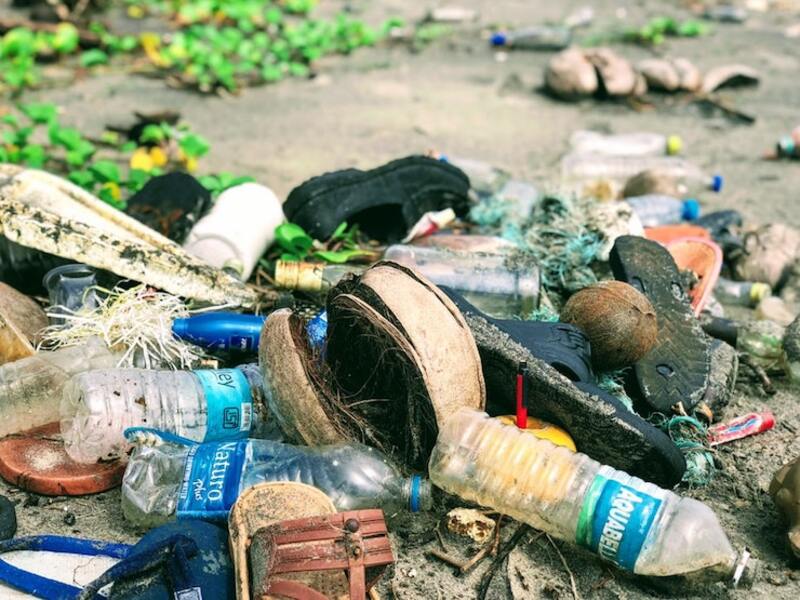
That’s why it’s necessary for initiatives such as Ecofiltro and Refill Aqua to unite and fight against the concept of bottled water and companies who are amongst the most responsible for climate change, yet don’t acknowledge it.
We have two solutions: we can pretend not to see the problems around us or we confront them in a way that is eco-friendly, efficient, and mostly honest.
There is no planet B.
Ecofiltro + Refill Aqua Partnership
And how do we work together exactly? The idea of Refill Aqua is to have a network of refill stations available throughout Barcelona: in yoga studios, cafes, restaurants, pharmacies, etc. All these stations will soon be available through an app.
The problem is the taste of tap water here which is full of calcium and chlorine.
Our first refill station in Gracia, powered by Ecofiltro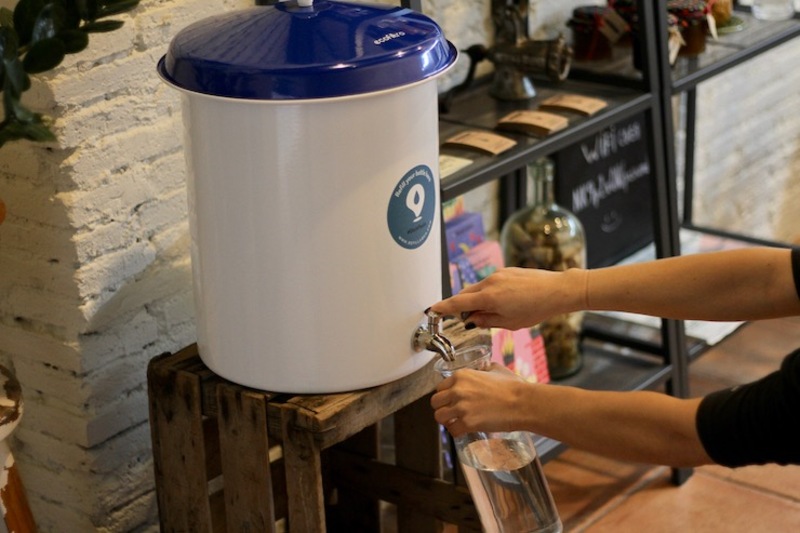
Since very few of our potential refill stations were able to offer filtered water, we knew we had to help them get set up. Partnering with Ecofiltro was an ideal solution. We could offer it to those who wanted to become refill stations at a special discount and with free transport in Barcelona. It was a win-win.
Every refill station gets a friendly sticker for its business window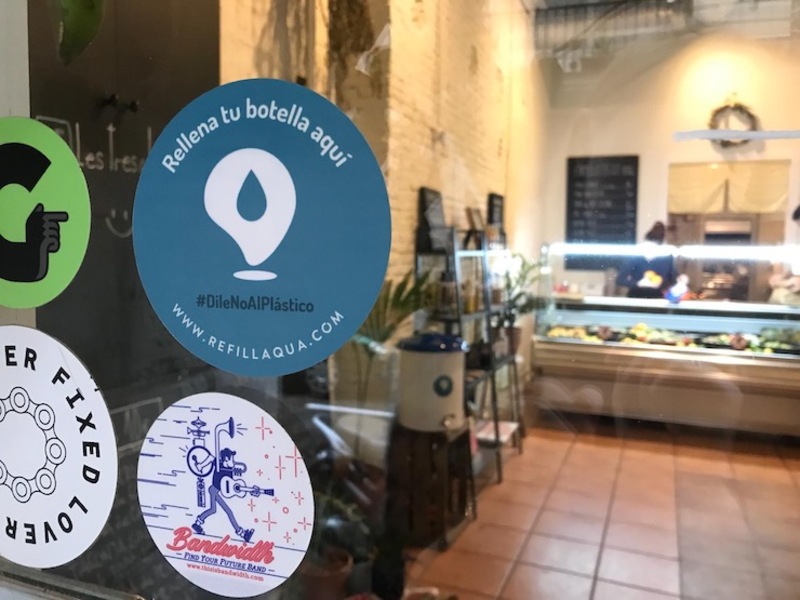
So, if you’d like to become a refill station and don’t have a way to offer filtered water, we can help you! Simply fill out the form below to let us know more about your business and why you want to join the initiative.
We All Need to Care a Little More
“We’re living in a “short term” world where everything seems disposable and the only thing we focus on is what to buy next. We don’t see the value of what’s really important: friendships, climate, nature around us.” says Ariana.
“We aren’t connected to the world around us as much as before, so not many of us care to save it. Not until it personally touches each of us.
But it’s a topic we must talk about. Reconnect with each other, with nature and with the fundamentals of our humanity. Such as water. Instead of taking one-hour showers and consuming countless water bottles, let’s stop to think. Let’s not take this privilege for granted.
“Little by little we’re adding our grain of salt and initiatives like Refill Aqua are a perfect opportunity for all of us to join forces and to spread awareness.” - concludes Ariana.
Are you also tired of single-use plastics? Join our initiative and be the first to know when we launch our app with refill stations in Barcelona!

Marta Olszewska
Co-founder of Refill Aqua striving to reduce single-use plastic waste. Marta is also a marketing consultant and growth mentor helping startups tell better stories through content.